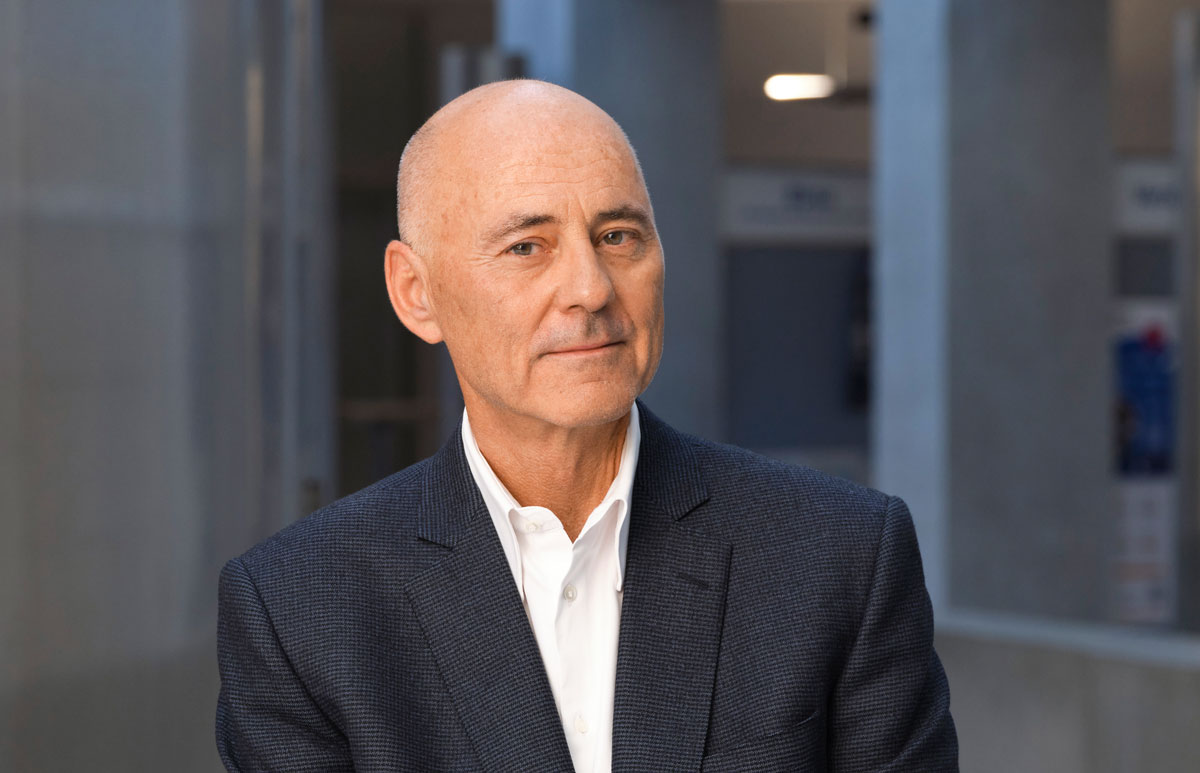
“I learnt most of what I know on the job”
Stefan Flückiger has represented Switzerland at the highest international level. After a long career as a diplomat, the easy thing to do in retirement would be to sit back and enjoy life. Instead, he is more than happy to pass on his experience to students at the ZHAW.
The first country Stefan Flückiger was sent to as a diplomat was Haiti. It was in 1990 that the first democratically elected president came to power in this Caribbean country. Starting in 1994, Flückiger was given responsibility for rebuilding the impoverished state on behalf of the World Bank. “After three years, the mission came to an end without us achieving our objectives despite the presence of numerous experts and generous financial support from many countries and organisations,” he explains. “During that time, I learnt a great deal about development cooperation.” Flückiger shares his view that it is not enough to simply establish a democratic system in a country that has no experience with democracy. “As long as the state has no reliable institutions of its own in place, it won't work out in the long run.” Support from the outside is always perceived as a foreign voice – necessary, but also degrading. Flückiger says that it takes several generations to lead a country from dictatorship to democracy, as can still be seen today in the former East Germany.
Stefan Flückiger worked as a diplomat on behalf of Switzerland for 30 years. He originally did English Studies in Zurich and had intended to become an English teacher. “However, I quickly realised that working in a school environment wouldn't be enough to let me really spread my wings,” he recalls. “I have always had a great interest in current affairs, international politics and economic contexts.” After a short stay at the Ivy League university of Yale in the US, he came to realise that he was more interested in practical work than embarking on an academic career. He therefore took the diplomatic entrance examination at the Federal Department of Foreign Affairs (FDFA) in 1989. He reminisces that it was a different time: “At the end of the 1980s, we didn’t have the Internet or mobile phones. Travel diplomacy was expensive and rare,” says Flückiger. Back then, it was part of a diplomat’s job to tell the authorities back in Bern what was happening in their assigned country. “I found this aspect exciting, as I am fascinated by other cultures and ways of thinking. In the past, he adds, diplomats were allowed to act more independently than is the case today. It was during his first assignment in Zimbabwe, where he spent time as part of his training, that Flückiger realised he had chosen the right path.
The move to Berlin
During the course of his career, Stefan Flückiger increasingly established himself as an expert in economic and financial policy. “I did take courses in economics at Yale, but I learnt most of what I know on the job,” explains the 66-year-old. “I had great mentors who taught me everything.” After returning from Haiti, Flückiger was posted to Bonn in 1997. As Head of the Economic Department of the Swiss Embassy, he witnessed the embassy's move back to Berlin, Germany’s historical capital. His time in office also coincided with the controversial monetary union of the Ostmark with the D-Mark and later the introduction of the euro in Germany – a time of change that he looks back on as a very exciting chapter.
Chance has sometimes also helped in determining Flückiger’s next career step. During the crisis-ridden 1990s, Swiss entrepreneurs came up with the idea of creating a think tank based on the US example in order to develop proposals on how the country could be reformed. Flückiger learnt about this and was fascinated. Between 2002 and 2005, he would end up working as one of the leading figures in setting up the Avenir Suisse think tank in Zurich.
“It takes several generations to lead a country from dictatorship to democracy.”
A deployment north of the Article Circle
Flückiger’s next stop was Paris. In 2006, he became Deputy Ambassador of Switzerland to the Organisation for Economic Cooperation and Development (OECD). Four years later, he would take over the top job. Among other things, he was in charge of a dossier that was not only extremely important for Switzerland, but also highly sensitive: banking secrecy. In the wake of the 2008 financial crisis, Switzerland was no longer able to avert the abolition of this longstanding system.
Stefan Flückiger returned to Bern in 2014 and was tasked with campaigning for Switzerland to be granted observer status in the Arctic Council, which brings together the eight states that have territories within the Arctic. Switzerland has been conducting research in the Arctic for more than a century and faces similar challenges in its Alpine regions to those faced by the Nordic countries. What is more, global warming is opening up new trade routes north of the Arctic Circle, making the area strategically important. “At last I got the opportunity to travel,” the former diplomat recalls. “The meetings took place in Iceland, Sweden, Norway and Russia.” Switzerland would finally be admitted to the Arctic Council as an observer. “That was the first time that I really became aware of the impact of climate change,” says Flückiger. In 2018, he switched to the State Secretariat for Economic Affairs (SECO), where he led negotiations for trade agreements with the EU and the UK over a period of two years.
Flückiger had actually wanted to bring the curtain down on his career as an ambassador somewhere far away from Switzerland. Instead, the Federal Council appointed him Deputy State Secretary for International Financial Matters in 2020. Up to 2023, he represented Switzerland at the meetings of the world's most important industrialised countries and emerging markets, namely the G20. While Switzerland is not a member, it takes part in what's called the Finance Track, in which financial and currency-related issues are discussed. While his long-held dream of travelling had become true, he also found it to be a frustrating and strenuous time: “I found myself rushing from conference to conference and used to spend two or three days in places like Washington, Saudi Arabia, Indonesia or India.” Although he admits that his environmental footprint must have been huge during this three-year period, he considered it a privilege to be able to follow the discussions taking place at the highest international level.
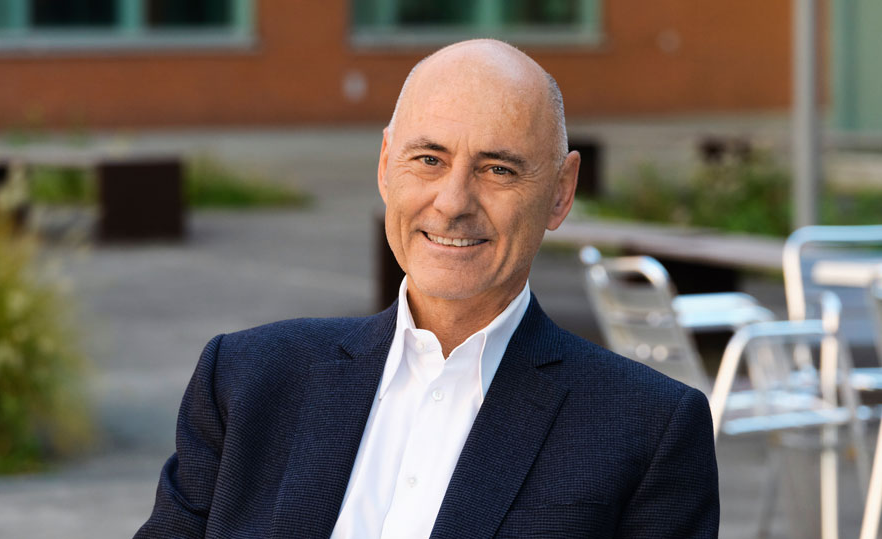
New role as a lecturer
The former diplomat has now been retired for a year. However, Stefan Flückiger remains active and wants to share his experiences. This desire has seen him speak as a guest lecturer at the ZHAW since spring 2024, where he holds two block seminars each semester at the School of Management and Law: “Focus on Current Affairs” and “International Trade and Policy.” Both courses turn their attention to the international financial system and its history, in which field Flückiger can draw on his rich experience in the area of current global politics. “I realise that many people lack an historical awareness of how economic growth and prosperity came about and what consequences this has for developing countries and the environment,” says the lecturer. This is something he would like to change. Stefan Flückiger emphasises that chatting with students while teaching is something he enjoys. The seminars also give him the opportunity to process his personal experiences at a theoretical level. The former diplomat also serves as Honorary President of the Green Fintech Network, which promotes green digital financial companies. And when he’s not travelling, you’ll find the literature and linguistics graduate at home at Wiesendangen reading a book. “I finally have time for it,” says Stefan Flückiger with a smile on his face. “My passion for literature still burns bright!”
(Photos: Conradin Frei)
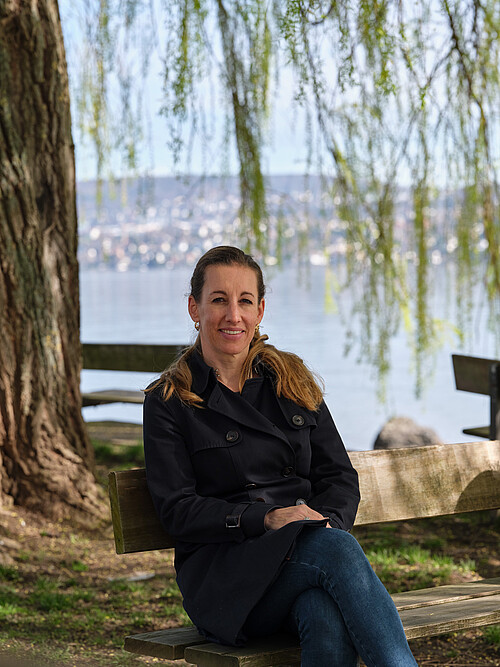
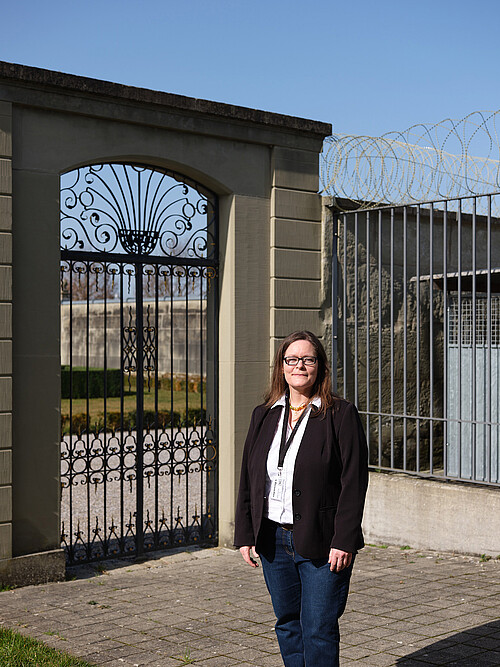
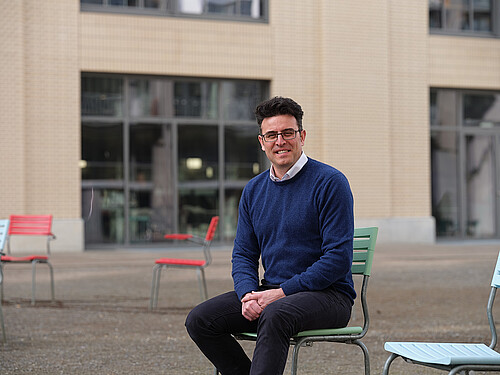
0 Comments
Be the First to Comment!